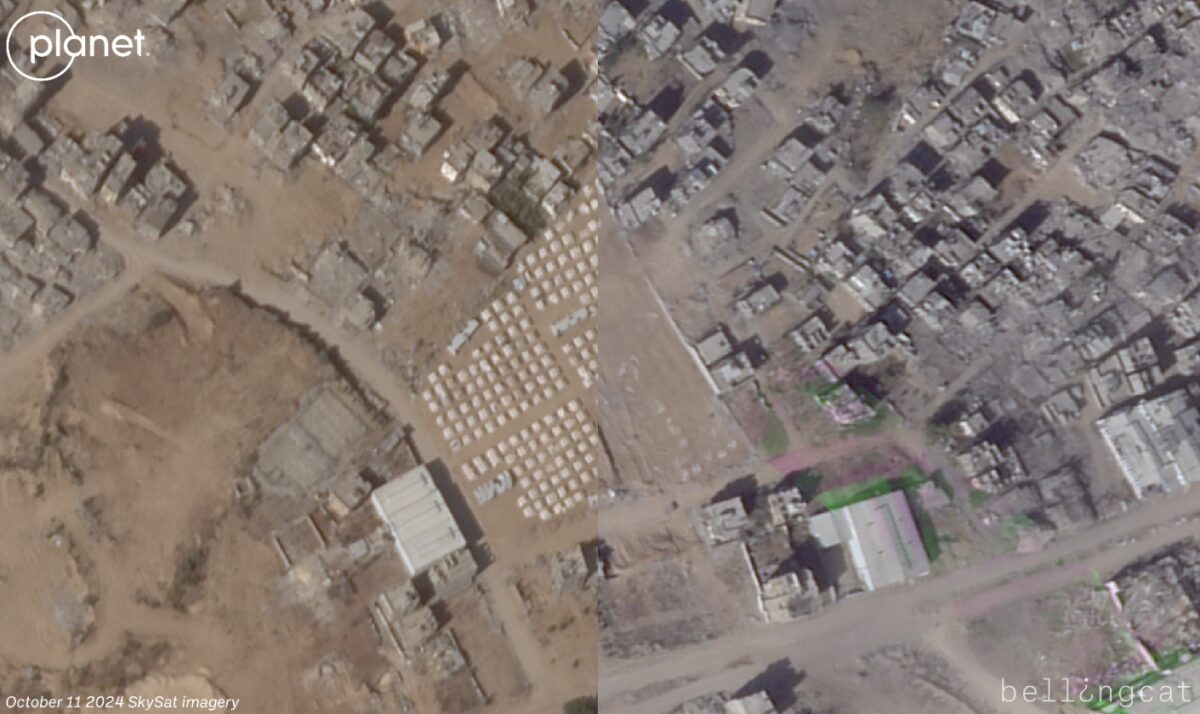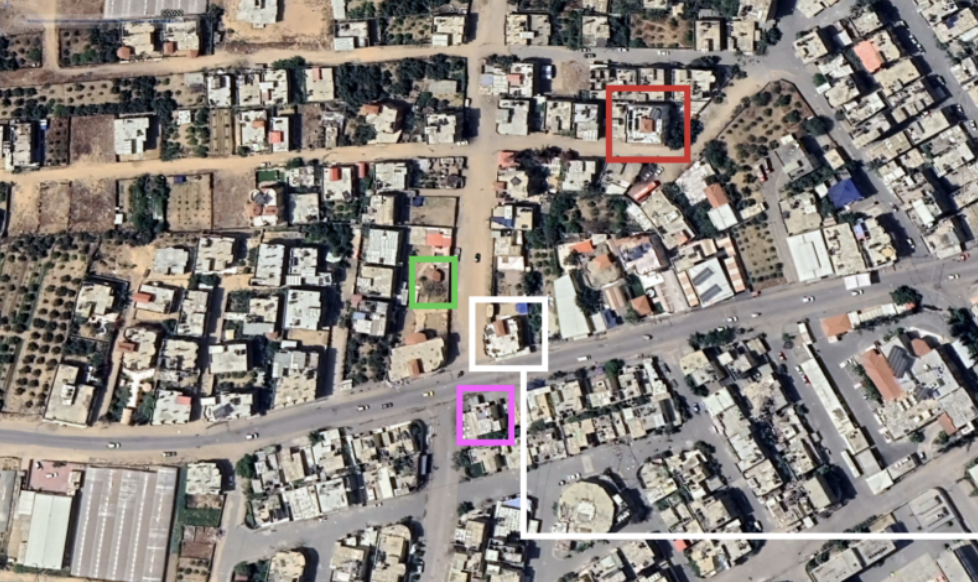On UK Arms Exports to Israel and the Likelihood of a Suspension
Since the most recent conflict in Gaza began, domestic pressure has been growing on the British Government to take a stronger stance towards Israel. In particular, the focus has been on demands to establish an arms embargo, or to a lesser extent to suspend a number of export licences for arms and components which Israel could potentially be using in its military bombardment of Gaza. The Business Secretary Vince Cable, whose department is officially responsible for export licencing, yesterday announced a suspension of 12 export licences if “significant hostilities” resume.
In Vince Cable’s and Nick Clegg’s public tug of war with Number 10 and the Foreign Office over arms exports to Israel, the latter have won the first round, ensuring a suspension is conditional, and that the final say on what constitutes a resumption of “significant hostilities” will be one for the PM or Foreign Secretary to decide.
A limited suspension:
In an official statement, the Government only provided details for 3 of the 12 export licences which they would be willing to suspend; namely components for military radar systems, combat aircrafts, and tanks. Based on evidence given by Vince Cable to the Arms Exports Controls Committee in May this year, the UK has approximately 177 extant export licences to Israel which fall under the ‘Mil’ category(those exports explicitly military in purpose). The justification given for the selection of the 12 highlighted licences is that the Government itself has been unable to determine whether they meet the criteria for issuing export licences. However a brief look at the 177 extant arms export licences clearly suggests that far more than 12 current licences would be equally questionable under the Government’s own criteria; namely whether an export would:
- contravene the UK’s international commitments (ie breach arms embargoes or sanctions)
- be used for internal repression or the abuse of human rights
- provoke or prolong armed conflicts or aggravate existing tensions in the destination country
- be used aggressively against another country
- adversely affect the national security of the UK or allies
- be to a destination where the behaviour of the buyer country raises concerns with regard to its attitude to terrorism or respect of international law
- be diverted or re-exported under undesirable conditions
- in the case of developing countries, seriously hamper the sustainable development of the recipient country
The disclosure of only 3 of the targeted licences is problematic, since of the 177 export licences under the ‘Mil’ category, there are at least 20 separate licences for “components for military radars”. How many, or which specific ones make up the 12 highlighted licences remain unclear, or indeed if more than 1 of the 12 licences relate to parts for military radars. Similarly there are 2 separate licences for “components for combat aircraft”, and 5 separate licences for “general military vehicle components”.
As well as those noted above, some of the other military class export licences to Israel include:
20 licences – components for targeting equipment
11 licences – components for electronic warfare equipment
5 licences – components for combat naval vessels
5 licences – components for military support aircraft
4 licences – military communications equipment
3 licences – aircraft military communications equipment
2 licences – small arms ammunition
2 licences – anti-riot/ballistic shields
2 licences – technology for unmanned air vehicles
1 licence – components for surface-to-surface missiles
1 licence – components for military helicopters
1 licences – components for sniper rifles
1 licence – components for military infrared/thermal imaging equipment
1 licence – body armour, components for body armour, military helmets
1 licence – components for military aero-engines
1 licence – components for military combat vehicles
1 licence – components for air-to-surface missiles
1 licence – anti-armour ammunition
1 licence – Water cannon
1 licence – Weapons sights
The Government’s lack of transparency over this matter is a clear concern. On the 7th August, the Chairman of the Arms Exports Controls Committee wrote to the Foreign Secretary requesting a list of “all the controlled goods…that have received the British Government approval for export to Israel which the Government has reason to believe may been used by the Israelis in the course of Operation Protective Edge either from within Israel or in Gaza itself.”. This request is separate to the published details of the Government’s recent review, and the deadline for a response is the 29th August, at which point the resumption of hostilities may have long since begun.
A policy shift?
In a recent article for Haaretz, Anshel Pfeffer made the case that historically arms suspensions have had little effect on Israel, and that the proposed suspension would be equally ineffectual. Pfeffer also goes one to cite unnamed Israeli officials, in relation to the proposed suspension, as saying that “an actual suspension was highly unlikely”.
Both statements are problematic for separate reasons. Firstly the point of a suspension, at least for campaigners and politicians calling for it, is not to have an impact on the effectiveness or capacity of the Israeli military. The reality is far simpler, namely to ensure the UK is not complicit in Israel’s disproportionate use of force and alleged war crimes, and that the British Government is consistent in its application of its own criteria for the approval of export licences. For comparison on the latter point, almost immediately after the Rabaa massacre in August last year, the British Government suspended 49 export licences to Egypt, and revoked entirely a further 5.
As for questions regarding the likelihood of a suspension to be actually enforced, Pfeffer’s article neglects to mention any suspensions, revocations, or denial of export licences beyond the period of Margaret Thatcher’s tenure as Prime Minister, giving the misleading impression that there have been no action over export licences to Israel since. However soon after Operation Cast lead, then Foreign Secretary David Miliband suspended 5 export licences to Israel specifically relating to arms used by Israel during the military campaign. Equally, 10 export licence applications were refused in 2009, 5 of which were for military equipment and 2 of which were 1C350 class chemicals; a set of dual-use chemicals recognised for their use in chemical weapons programmes, and which include 4 forms of phosphorus. 1 licence was also revoked altogether in 2009, relating to ‘components for naval radars’.
Again in 2012, during the last quarter of the year in which Israel launched ‘Operation Pillar of Defense’, the UK refused 4 export licence applications including ‘components for artillery ammunition’, and ‘components for military patrol/assault craft’. These various actions do not indicate a policy shift; rather a bowing to domestic pressure from not just campaigners and Human Rights organisations, but significant pressure from within parliament itself; including the Arms Exports Controls Committee. The likelihood of the UK arms suspension for exports to Israel is not necessarily a reflection of its Israel policy; although the scale and limits of the proposed suspension are. The administration and approval of arms export licences are handled by the Department for Business, Innovation, and Skills, although tellingly the FCO has its own section dedicated to arms export controls. The limited nature of the decision announced by Vince Cable is a perfect reflection of this division.
Note: The figures provided on extant export licences are based on evidence provided by Business Secretary, Vince Cable, on May 12th 2014, and represent the most up to date data provided by the Government. The Government have confirmed that there has been no further action taken on exports during Operation Protective Edge, and according to the Government’s Strategic Export Controls databased, no export licences were issued in the intervening period. The data pertaining to previous years is based on the Department for Business, Skills and Innovation Strategic Export Controls report and statistics site.


